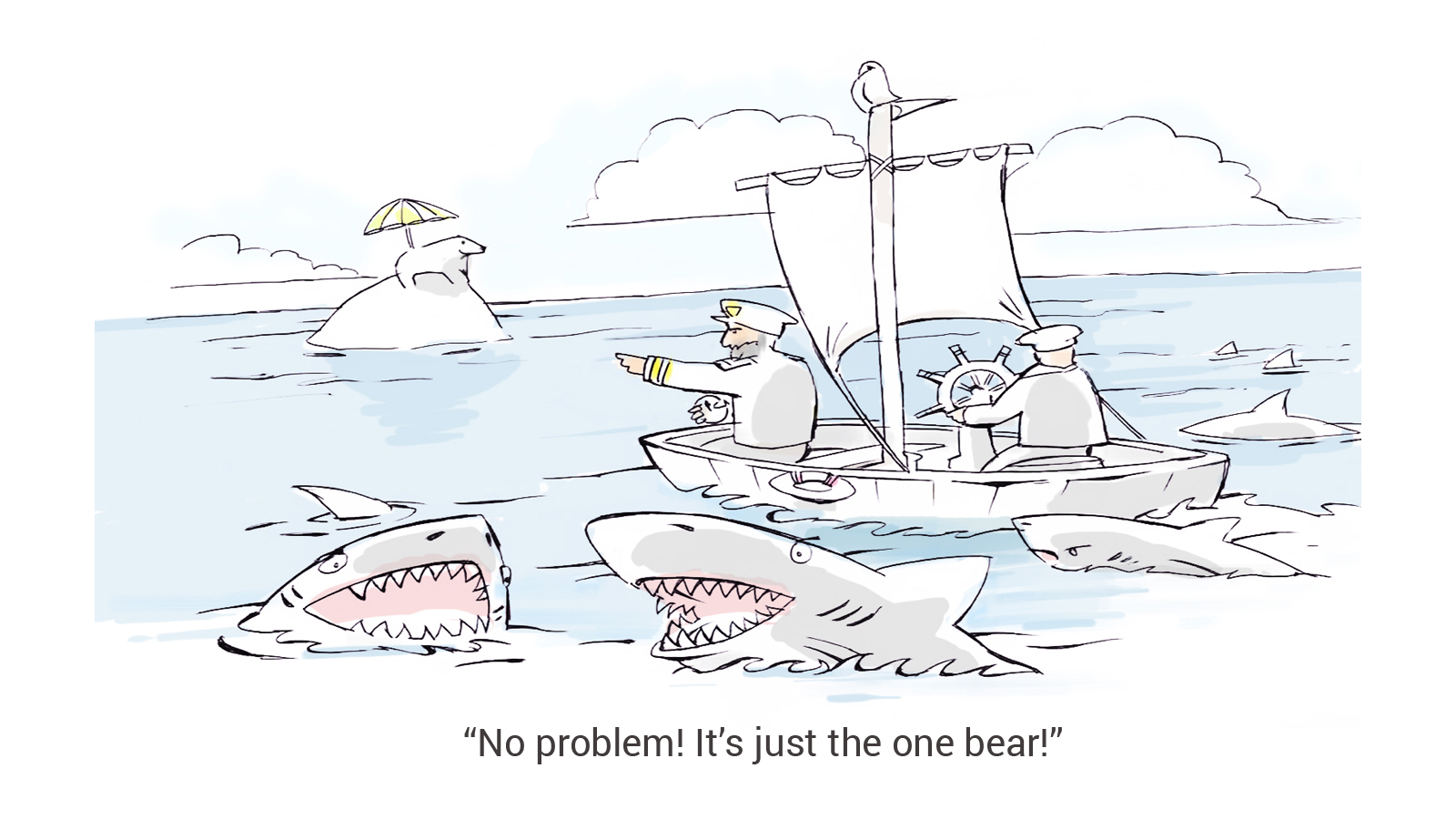Complexity Cheat #01: Into the Jungle -The Art of Honest Observation
Categories Complexity, Systems Thinking, The Complexity Tool Kit
Following on from our previous post, let us start this one with another short story to illustrate the principles of our first complexity cheat:
In the Jungle
Three adventurers competed in a race through a very wild jungle to prove who is the best of them. The first brought a map and compass, the second a machete, but the third said he'd rather travel light and not bring anything.
When several weeks later none of them had reappeared, a rescue team was sent into the jungle. They found the first adventurer half eaten by an enormous snake. He had been on the right path but got surprised by the snake when he rested.
Then they found the second one. He had successfully fought off all wild creatures and hacked his way through the undergrowth but had lost his path and fallen down a steep slope.
They didn't find the third adventurer until they came back to their camp. There he was, scratched and hungry but alive and healthy. When asked how he survived without anything, he answered:
'I have something, none of the others had: I understand the jungle.'
A Systems Approach to Navigating the Jungle
Getting involved in a complex situation often feels like entering a jungle. You seem to only see the next few steps ahead, no chance of gaining an overview, no maps, no compass, and the overwhelming density of undergrowth encroaching on you from all sides hinders your movement and progress.
Any jungle, however, is a system. And all systems have their own ruling laws and patterns, whether they are organizations, societies or eco-systems. Navigating complexity means to learn to understand these laws and patterns and adjust your movements to their demands.
Honest Observation vs. Confirmation Bias
To learn to understand the jungle - which could be the clearing centre of a retail bank, your organization, your company's operational environment, the dynamics of the Asian financial markets, the economic implications of the out-phasing of fossil fuels for your business, or any other complex dynamics you are caught up in - you need to observe.
Observing sounds a lot easier than it actually is. When we observe our brain immediately evaluates what we see, filters according to what it considers relevant and irrelevant, valuable or just noise. We perceive the information that seems to matter within our current frame of mind and block out those observations that contradict or just don't seem to fit in. We easily become victims of Confirmation Bias, remembering that information that supports our opinion a lot better than that which contradicts our thinking.
To make sense of a complex challenge we need to learn to observe without bias. That requires being brutally honest about what we see even though it might be ugly, scary and intimidating. Honest observation forces us to acknowledge what is working and what is going wrong - including our own shortcomings and failures and what we ourselves contribute to the problem at hand.
Observation is also about noticing what is missing from a situation, factors not present may be just as influential as those which are. Complex challenges may be multidimensional and need examination from different angles to capture their totality. All this requires holding back from making snap judgments based on partial viewing which renders your conclusions unreliable.
Recognize the Jungle, then Choose Your Movements
Honest observation is an uncomfortable, rigorous but necessary first step. It is the only way you can gather the reliable information you need to make sense of complex challenges and identify options for effective intervention.
Once you truly see the jungle in its danger and beauty you can choose your path in it; move where the undergrowth is most likely to give way, avoid the snake - or catch it for dinner, walk along the edge of the steep slope or use it as a short cut. And you can decide at what point it is unavoidable to swing the machete to cut back what prevents you from gaining ground.
To make those decisions you then need to take your observations and look at them within their context, identifying patterns and principles. How to do that we will explore in our next 'Complexity Cheat No.2 - Visualization'.
by Antonia Koop and Christine Baker
